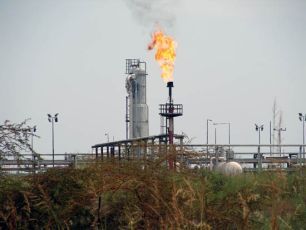Sudan’s North-South oil deal feared to omit transparency terms
By Muhammad Osman
July 11, 2011 (NAIROBI) – A fresh deal between North and South Sudan on managing oil revenues is “highly unlikely” to contain guarantees for transparency, an international NGO has said, warning that such shortcoming could stoke mistrust and conflict between the ex-war foes.

South Sudan, whose oilfields produce over 70 percent of the two countries’ combined proven daily output of 500,000 barrels, needs the North’s refineries and pipeline infrastructure to transport its oil to export terminals.
The near-total dependency of the two countries’ economies on the oil sector leaves them with little choice but to maintain cooperation. However, analysts say the CPA-mandated 50-50 split is unlikely to continue.
The two sides have been engaged in protracted talks with sluggish progress over a wide-array of issues to untangle what was once Africa’s biggest country, including management of oil revenues.
“From everything we’ve heard, it is highly unlikely that when a new oil deal is agreed the text will contain explicit requirements for transparency and accountability,” Dana Wilkins of the London-based Global Witness told Sudan Tribune.
She cautioned that “this would be a very dangerous omission, one that would threaten to undermine the entire deal.”
Conversely, a fair and mutually beneficial deal containing guarantees of transparent implementation “could provide a powerful incentive for peace between the two parties,” Wilkins said.
She explained this means that “both sides, as well as the wider public, having access to all the data necessary to verify that the deal is being implemented fairly and to track where the revenues go.”
“Just as critical as a new deal being agreed to will be ensuring that transparency and independent verification are guaranteed in the implementation of the deal,” Wilkins said.
In September 2009, Global Witness released a report raising questions on discrepancies of 9-26 percent between the oil figures published by the Sudanese government and those published by the main operator in the country’s oil blocks, the China National Petroleum Corporation (CNPC).
The report, titled “Fuelling Mistrust: the need for transparency in Sudan’s oil industry”, sparked tension between North and South Sudan, prompting both the country’s ministry of oil and CNPC to provide explanations which Global Witness deemed unsatisfactory in another report published in January 2011.
(ST)
